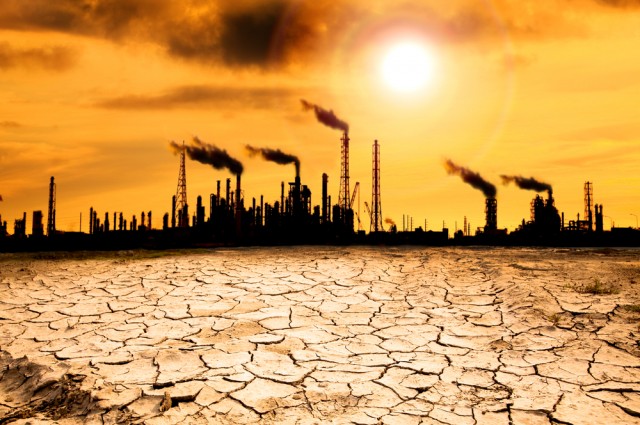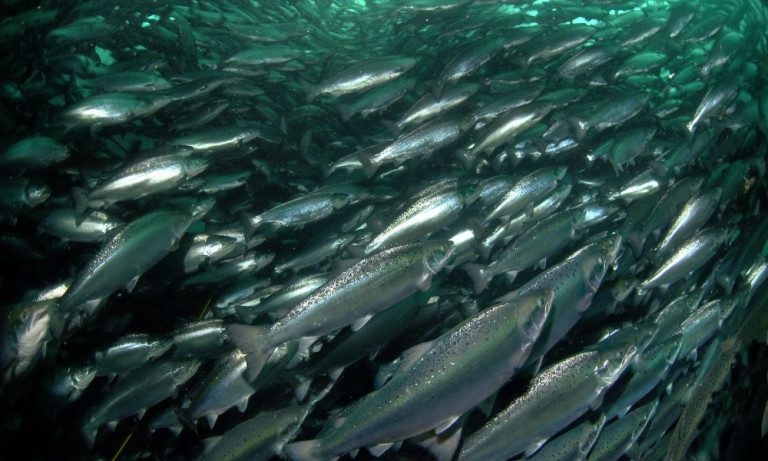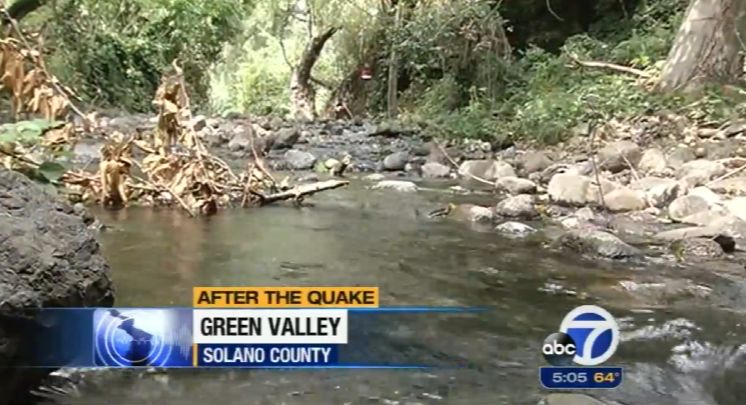Scientists at the biggest U.S. oil company understood as early as anyone that fossil fuel emissions were heating up the earth’s atmosphere.
Paul Barrett
Matthew Philips matthewaphilips
Cover photo-www.iran-daily.com
September 7, 2016 — 11:00 AM CEST
Last fall, ExxonMobil executives hurried along the hushed, art-filled halls of the company’s Irving, Texas, headquarters, a 178-acre suburban complex some employees facetiously call “the Death Star,” to a series of emergency strategy meetings. The world’s largest oil explorer by market value had been hit by a pair of multipart investigations by InsideClimate News and the Los Angeles Times. Both reported that as early as the 1970s, the company understood more about climate change than it had let on and had deliberately misled the public about it. One of Exxon’s senior scientists noted in 1977—11 years before a NASA scientist sounded the alarm about global warming during congressional testimony—that “the most likely manner in which mankind is influencing the global climate is through carbon dioxide release from the burning of fossil fuels.”
The two exposés predictably sparked waves of internet outrage, some mainstream media moralizing, and the Twitter hashtag #ExxonKnew. TheWashington Post editorial page, for one, chided Exxon for “a discouraging example of corporate irresponsibility.” Bill McKibben, the founder of the environmental group 350.org, which spearheaded protests against the Keystone XL pipeline, wrote an impassioned article in the Guardian accusing Exxon of having “helped organize the most consequential lie in human history.”
Kenneth Cohen, then the company’s vice president for public and government affairs, convened near-daily meetings to form a response. “We all sat around the table and said, ‘This feels very orchestrated,’ ” says Suzanne McCarron, who succeeded Cohen when he retired at the end of last year. McCarron still seems shocked that her company could come under sustained attack. “We wanted to know who’s behind this thing,” she says. While Exxon tried to identify its new nemesis—made difficult, perhaps, by the release of the two reports being coincidental—the executives also decided to nitpick the journalism and sent lobbyists to Capitol Hill to argue their side. That didn’t go so well. “I couldn’t get any journalist to actually evaluate the coverage,” Exxon spokesman Alan Jeffers says, with evident frustration.
The crisis might have died down, a week or two of bad PR and nothing more, but several politicians saw an opening. On Oct. 14, four weeks after the firstInsideClimate report, Democratic Representatives Ted Lieu and Mark DeSaulnier, both from California, asked U.S. Attorney General Loretta Lynch to launch a federal racketeering investigation of Exxon. “It occurred to me that this looks like what happened with the tobacco companies a decade ago,” Lieu says. Democratic presidential candidate Hillary Clinton added her support for a Department of Justice inquiry. “There’s a lot of evidence that they [Exxon] misled people,” she said two weeks later.
Stoked by 40 of the nation’s best-known environmental and liberal social-justice groups—including the Environmental Defense Fund, Sierra Club, and Natural Resources Defense Council—the anti-Exxon animus only intensified. And if there wasn’t a coordinated campaign before, now there was: The groups all signed an Oct. 30 letter to Lynch also demanding a racketeering probe. (Lynch has since asked the FBI to examine whether the federal government should undertake such an investigation.) The same day, Lieu and DeSaulnier tried to interest the Securities and Exchange Commission in a fraud probe against Exxon, a request that’s pending. Five days later, on Nov. 4, New York Attorney General Eric Schneiderman opened a formal investigation into whether Exxon had misled investors and regulators about climate change.
“We cannot continue to allow the fossil fuel industry to treat our atmosphere like an open sewer or mislead the public about the impact they have on the health of our people and the health of our planet,” former Vice President Al Gore said at a subsequent news conference organized by Schneiderman. Compelled by the New York AG’s subpoena, Exxon has so far turned over some 1 million pages of internal documents.
Hours after Schneiderman issued his subpoena, Exxon Chief Executive Officer Rex Tillerson went on Fox Business Network. “The charges are pretty unfounded, without any substance at all,” he said. “And they’re dealing with a period of time that happened decades ago, so there’s a lot I could say about it. I’m not sure how helpful it would be for me to talk about it.” These remarks themselves weren’t terribly helpful—certainly not to Tillerson’s company.
McCarron and her colleagues can sound a tad overwrought when discussing all this. “The goal of the coordinated campaign is to delegitimize the company by misrepresenting our history of climate research,” she says. “Tackling the risk of climate change is going to take a lot of smart people, and we’ve got some of the best minds in the business working on this challenge.”
A company that has 73,500 employees and reported $269 billion in 2015 revenue would seem not to have much to fear from a bunch of tree-huggers and a grandstanding state AG. And yet the #ExxonKnew backlash comes at a financially perilous time for Big Oil. A glut-driven collapse in crude prices has rocked the entire industry. On July 29, Exxon announced second-quarter profit of $1.7 billion, its worst result in 17 years. That followed a rocky spring when ferocious wildfires reduced production in the oil-sands region of western Canada. (The frequency and intensity of such fires may be related to climate change, Exxon’s Jeffers acknowledges, adding, “But we just don’t know.”)
Most important, though, #ExxonKnew comes as climate change, after being on a legislative back burner, has gotten hot again. Signs of this include President Obama’s rejection last November of the Keystone pipeline from western Canada, the Paris summit in December that produced an international agreement to lower greenhouse gas emissions, and the U.S.-China plan, finalized on Sept. 3, committing the world’s two largest economies to implement the Paris accords. It’s too soon to say how much of a danger Schneiderman’s investigation poses to Exxon or if the corporation will ever be charged billions of dollars for carbon pollution. But it can’t ignore the risk of the sort of litigation storm that engulfed Big Tobacco in the 1990s. ExxonMobil doesn’t want to become the Philip Morris of climate liability.
#ExxonKnew has taken shape over the past year, but Peter Frumhoff traces its roots to January 2007. That’s when the Union of Concerned Scientists, a Cambridge, Mass.-based nonprofit, published a 64-page report alleging that Exxon used the cigarette industry’s tactics to “manufacture uncertainty on climate change.” Founded in 1969 by physicists worried about nuclear issues, the UCS has branched out over the years. Frumhoff, a 59-year-old Ph.D. ecologist, serves as its director for science and policy. He dresses in grad-school casual and seems highly amused by Exxon’s notion that he’s a central player in a conspiracy against the company. For starters, Frumhoff is a snap to track down and operates quite openly—violations of the conspirator’s imperative to plot in secret.
The 2007 report, which Frumhoff oversaw, compared Exxon to cigarette manufacturers that only five months earlier had been found liable by a U.S. district judge for violating the federal Racketeer Influenced and Corrupt Organizations Act (RICO). “ExxonMobil has underwritten the most sophisticated and successful disinformation campaign since Big Tobacco misled the public about the incontrovertible scientific evidence linking smoking to lung cancer and heart disease,” the report asserted.
With a relatively modest expenditure of $16 million from 1998 to 2005, Exxon helped fund a network of some 40 advocacy organizations that raised doubts about the growing scientific consensus that global warming is caused by carbon dioxide and other heat-trapping emissions, the UCS found. Exxon, Frumhoff says, is “sort of the poster child for combining a very large contribution to the [climate] problem with an arrogant organizational culture and a significant investment in disinformation to avoid regulation.”
The idea of “making oil the next tobacco” percolated quietly for several years and reemerged in June 2012 in sunny La Jolla, Calif., Frumhoff says. It was there that he co-convened a meeting of scientists and lawyers who discussed not only the parallels between fossil fuels and cigarettes, but also the method used to wound tobacco: the amassing via litigation of internal corporate documents showing that cigarette companies concealed the hazards of smoking. “Similar documents may well exist in the vaults of the fossil fuel industry and their trade associations and front groups,” an online report summarizing the La Jolla meeting stated. Even “a single sympathetic state attorney general might have substantial success in bringing key internal documents to light.”
Several more years passed before a passel of climate documents surfaced, not courtesy of a prosecutor’s subpoena, but as a result of journalistic digging: those reports in InsideClimate (21,000 words in length) and the Los Angeles Times. The two organizations reported that after accumulating climate knowledge for a decade or so, Exxon changed course beginning in the late 1980s, just as public debate over greenhouse gas emissions heated up.
By the 1990s, top Exxon executives were publicly raising doubts about the sorts of findings the company’s own scientists had made. In October 1997, Lee Raymond, then Exxon’s CEO, said in a speech in Beijing, “Let’s agree there’s a lot we really don’t know about how climate will change in the 21st century and beyond.” Arguing against the 1997 Kyoto Protocol, an early attempt to forge an international agreement on emission reductions, he added, “It is highly unlikely that the temperature in the middle of the next century will be significantly affected whether policies are enacted now or 20 years from now.”
Working separately from InsideClimate, the Los Angeles Times showed how Exxon incorporated climate change projections into its Arctic exploration plans in the 1990s while publicly undermining such projections.
The overlapping investigative journalism efforts appeared as delegations from countries around the world were getting ready for the December climate talks in Paris. On the sidelines of the Paris summit, McKibben, the author-activist, co-hosted a mock trial of Exxon in which he served as a prosecutor. “This is not just some run-of-the-mill, usual corporate malfeasance,” McKibben said at the trial. “It’s hard to imagine a set of corporate practices that could have done more damage.” Exxon, needless to say, was found guilty.
By its public-relations staff’s own admission, Exxon spent last fall and winter in a largely reactive mode, scrambling to respond to each new revelation or congressional request for an investigation—and never succeeding in offering an alternative narrative. “It was like playing whack-a-mole,” spokesman Jeffers says.
Seeking to illustrate how InsideClimate “cherry-picked” evidence, the company’s communications team pointed Bloomberg Businessweek to a half-dozen alleged examples. One focused on the site’s account of the late James Black, the Exxon scientist who told management in 1977 of the “general scientific agreement” about man-made global warming. Exxon accused the publication of failing to include qualifications feathered into Black’s work, such as his noting that “a number of assumptions and uncertainties are involved in the predictions of the greenhouse effect.” But InsideClimate did prominently note that Black’s “presentations reflected uncertainty running through scientific circles about the details of climate change.” Exxon also accused the organization of erroneously asserting that the company had “stopped” doing carbon research in the late 1980s. But InsideClimate had written, correctly, that the company “curtailed” its in-house research program during that period. (“Curtail” doesn’t mean “stop.”)
Exxon has also accused InsideClimate and the Los Angeles Times of having financial conflicts of interest. The Times articles were researched and written in collaboration with an environmental-reporting project at Columbia University’s Graduate School of Journalism, and that program has taken substantial grants from environmentally oriented foundations, such as those funded by the Rockefeller family. Despite the source of their original wealth—in 1870, John D. Rockefeller created Standard Oil, the corporate forerunner of Exxon—the Rockefeller charities in recent years have taken strong stands against the fossil fuel industry. The Rockefeller Family Fund gave Columbia Journalism School $550,000 to help pay for its fossil fuel reporting project but exercised no editorial control, says Lee Wasserman, director of the fund. The Los Angeles Times initially failed to disclose the funding of the Columbia reporting project, though the newspaper eventually linked to the financial details online. Since 2013, the separate Rockefeller Brothers Fund has provided InsideClimate with $200,000 a year; that fund had no say over what the website published, according to David Sassoon, InsideClimate’s founder and publisher.
As its attacks on journalists fizzled, Exxon tried sending lobbyists to dozens of congressional offices to counter #ExxonKnew on Capitol Hill. Lieu, the California Democrat seeking federal investigations, is still shaking his head over a November visit from four Exxon emissaries. The lobbyists handed out a 10-page presentation titled Managing Climate Change Risks, which sought to underscore the company’s carbon-reduction bona fides. “It was a really surreal meeting,” Lieu says. The lobbyists “came in and said, ‘We believe in climate change and that it’s being caused by humans, and we support a carbon tax.’ I thought to myself, Where is this coming from? Is this like some white-hat department that no one else at Exxon knows about?”
Lieu hadn’t been keeping up with the evolution of Exxon’s climate-related positions since Tillerson replaced the hard-nosed Raymond as CEO in 2006. In 2007, Exxon began cutting off funding for some nonprofits that deny widely accepted science on global warming. The company in 2009 for the first time endorsed a tax on carbon emissions, a stance vehemently opposed by Republicans in Congress and therefore dead on arrival on Capitol Hill. At the Exxon annual meeting in Dallas in May, the silver-haired Tillerson went out of his way to tell shareholders that “the risks of climate change are serious and they do warrant thoughtful action.”
Strictly speaking, though, #ExxonKnew isn’t a campaign aimed at what the company is saying or doing today. #ExxonKnew focuses on discrepancies between past actions and past statements. That historical inquiry, Lieu says, deserves the authority and force of a government investigation. Exxon’s lobbyists didn’t change his mind.
Exxon executives say their view of #ExxonKnew as a conspiracy was confirmed by the gathering of 15 state attorneys general and Gore in New York on March 29. Schneiderman, the host, says he organized the event simply to educate fellow state officials about his Exxon investigation. At the news conference, he sounded like he’d already decided to take the company to court: With “morally vacant forces” blocking climate action in Washington, he said, states were obliged to devise “creative ways to enforce laws being flouted by the fossil fuel industry.”
Schneiderman also arranged for private briefings for the visiting AGs. These closed-door sessions featured a talk on climate science by Frumhoff and a legal backgrounder by Matt Pawa, a private plaintiffs’ attorney who in 2013 won a $236 million groundwater-pollution verdict against Exxon. The company’s public-affairs representatives see great significance in Pawa’s also having attended Frumhoff’s 2012 gathering in La Jolla. “You see the same people showing up at planning meetings over the years,” Jeffers says. Schneiderman says he doesn’t know anything about the La Jolla session and that his office routinely consults with outside experts.
A more consequential aspect of the prosecutors’ conclave was the announcement by the attorney general of the U.S. Virgin Islands, Claude Walker, that his tiny Caribbean territory had launched a parallel investigation of Exxon. In theory, the Virgin Islands has ample reason to be anxious about climate change: Warming, rising ocean waters could swamp its homes and resorts in coming decades. But in practice, the territory proved itself inadequate to the task of confronting Exxon.
In March the Virgin Islands issued a sprawling, loosely worded subpoena that demanded the company’s correspondence with scores of conservative and free-market organizations, including FreedomWorks, the Heartland Institute, and the Heritage Foundation. In a separate subpoena, it sought documents directly from the Competitive Enterprise Institute, a right-leaning group that’s cast doubt on mainstream climate science and formerly received financial support from Exxon. This focus on communication opened the door for Exxon’s New York law firm, Paul, Weiss, Rifkind, Wharton & Garrison, to seek to kill the islands’ subpoenas on First Amendment grounds. Paul Weiss filed court papers in Texas on April 13 condemning the Virgin Islands’ attempt “to deter ExxonMobil from participating in ongoing public deliberations about climate change.” (The more precisely tailored New York subpoena didn’t explicitly name nonprofits with which Exxon may have communicated.)
Finally, Exxon had its counterpunch: that hostile outsiders had attacked the company’s free-speech rights. There’s a reason Theodore Wells, the Paul Weiss partner who’s led Exxon’s legal defense (and has represented such clients as Philip Morris), is known as one of the craftiest people in his profession. However unlikely the image of Exxon as victim, that’s how Wells decided to characterize his client—and it worked. On April 22, the Washington Post carried two opinion pieces on the topic: a column by George Will headlined “Scientific Silencers on the Left Are Trying to Shut Down Climate Skepticism” and one by Sam Kazman and Kent Lassman, respectively general counsel and president of the Competitive Enterprise Institute, condemning “the environmental campaign that punishes free speech.” In the following days, dozens of similar broadsides were issued from the Wall Street Journal editorial page, Fox News, the Heritage Foundation, and many others.
Once again, politicians followed. In mid-May, the House Committee on Science, Space, & Technology began investigating what it called “a coordinated attempt to deprive companies, nonprofit organizations, and scientists of their First Amendment rights.” The only company the panel mentioned by name was Exxon. Committee staff members and Exxon’s McCarron say that despite the company’s widespread lobbying of Congress, it didn’t ask the panel or its chairman, Lamar Smith (R-Texas), to begin the probe. First elected in 1986, Smith has received almost $685,000 in career campaign contributions from the oil and gas industry, according to the Center for Responsive Politics. By early July, the Virgin Islands had turned tail and withdrawn its subpoenas of Exxon and the Competitive Enterprise Institute. Trying to put the best spin on his humiliating retreat, Virgin Islands AG Walker said via e-mail that extricating itself from the subpoena imbroglio will allow his office to “use our limited resources to address the many other issues that face the Virgin Islands and its residents.” Wells didn’t respond to requests for comment.
Schneiderman now finds himself under investigation, too. When the New York AG’s office refused to cooperate with the science committee, Smith issued subpoenas to Schneiderman; Massachusetts Attorney General Maura Healey, who’d launched her own investigation of Exxon; and eight nongovernmental organizations, including the Rockefeller funds, the Union of Concerned Scientists, and 350.org. “Unfortunately, the attorneys general have refused to give the committee the information to which it is entitled,” Smith told reporters on July 13. “What are they hiding and why?”


Not a thing, according to Schneiderman, who says Smith’s inquiries evoke 1950s-era communist hunting by the House Un-American Activities Committee: “They have no evidence of any cabal, no evidence of any misconduct.” As for the science panel’s concern about Exxon’s First Amendment rights, Schneiderman says the federal government’s successful RICO case against the tobacco companies made “very clear that the First Amendment doesn’t give you the right to commit fraud.”
If Schneiderman continues to resist the House committee’s document demands, the confrontation could end up in court—a fight the New York official sounds eager to have. He’d have an excellent chance of winning, too. It’s unusual for a congressional panel to interfere with a pending state investigation, says Senator Sheldon Whitehouse (D-R.I.), a former federal prosecutor who advocates putting Exxon under a microscope. Smith “is trying to subvert the power of state government [and] do something he is not entitled to do under any kind of discovery rules,” Whitehouse says. More succinctly, Peter Shane, a law professor at Ohio State University, says, “Congress has no authority over the conduct of state law enforcement.”
Exxon, for its part, has been cooperating with Schneiderman’s subpoena because the company’s lawyers at Paul Weiss advised their client that it had no choice, according to a person familiar with the situation. Schneiderman is investigating under the broad provisions of a 1921 state law called the Martin Act, arguably the most potent securities-fraud statute in the country. Named for sponsor Louis Martin, an otherwise-forgotten state assemblyman, the law forbids “any fraud, deception, concealment, suppression, [or] false pretense.” Crucially, it doesn’t require a prosecutor to demonstrate that a defendant consciously intended to defraud investors or regulators. New York’s top court has interpreted it to cover “all deceitful practices contrary to the plain rules of common honesty.”
Schneiderman doesn’t have a slam-dunk case. “The New York attorney general has a plausible theory, but he’ll need more than the results of the journalistic investigations,” says Michael Gerrard, a law professor at Columbia who directs the Sabin Center for Climate Change Law. “It’s not enough to show that Exxon had internal knowledge of climate change when external knowledge was widespread. The government would have to show that there were things that only Exxon knew and that were material to investors and that Exxon kept from investors. Such evidence might be there, but we don’t know yet.”
One potential defense that Exxon is floating: Since the 1970s its scientists have published climate findings in more than 50 peer-reviewed articles. What Exxon knew, the argument would go, the wider scientific world also knew. The company didn’t keep secrets the way the tobacco industry did.
Few complicated securities-fraud cases go to trial; the risk of losing and the costs of extended litigation impel settlement. With those risks in mind, Exxon and New York may eventually look to a separate case resolved by Schneiderman’s office in November. The attorney general found after a two-year investigation that coal producer Peabody Energy provided incomplete information to investors by saying in public reports that it couldn’t “reasonably predict” the risks it faced from climate-related regulations. St. Louis-based Peabody, which in April declared bankruptcy amid a collapsing coal market, neither admitted nor denied wrongdoing and didn’t face pecuniary punishment. The company did agree to provide more forthcoming disclosures to investors.
“It’s really too soon to tell” whether the Peabody settlement provides a model for the Exxon case, Schneiderman says. He expects to amass evidence in the Exxon investigation of “a much more sophisticated ongoing policy of deception” than what his office found inside Peabody—wrongdoing that could warrant seeking substantial money damages. Exxon has kept that alleged policy in place through recent years, Schneiderman says, pointing to a 2014 company report claiming that international efforts to reduce climate change wouldn’t oblige fossil fuel producers to leave enormous amounts of oil in the ground untouched.
Exxon denies any deception took place and isn’t ready to talk settlement, McCarron says. She calls Schneiderman’s comments “an attack on the integrity of the company” and says Exxon “will pursue all available legal options to defend ourselves.”












